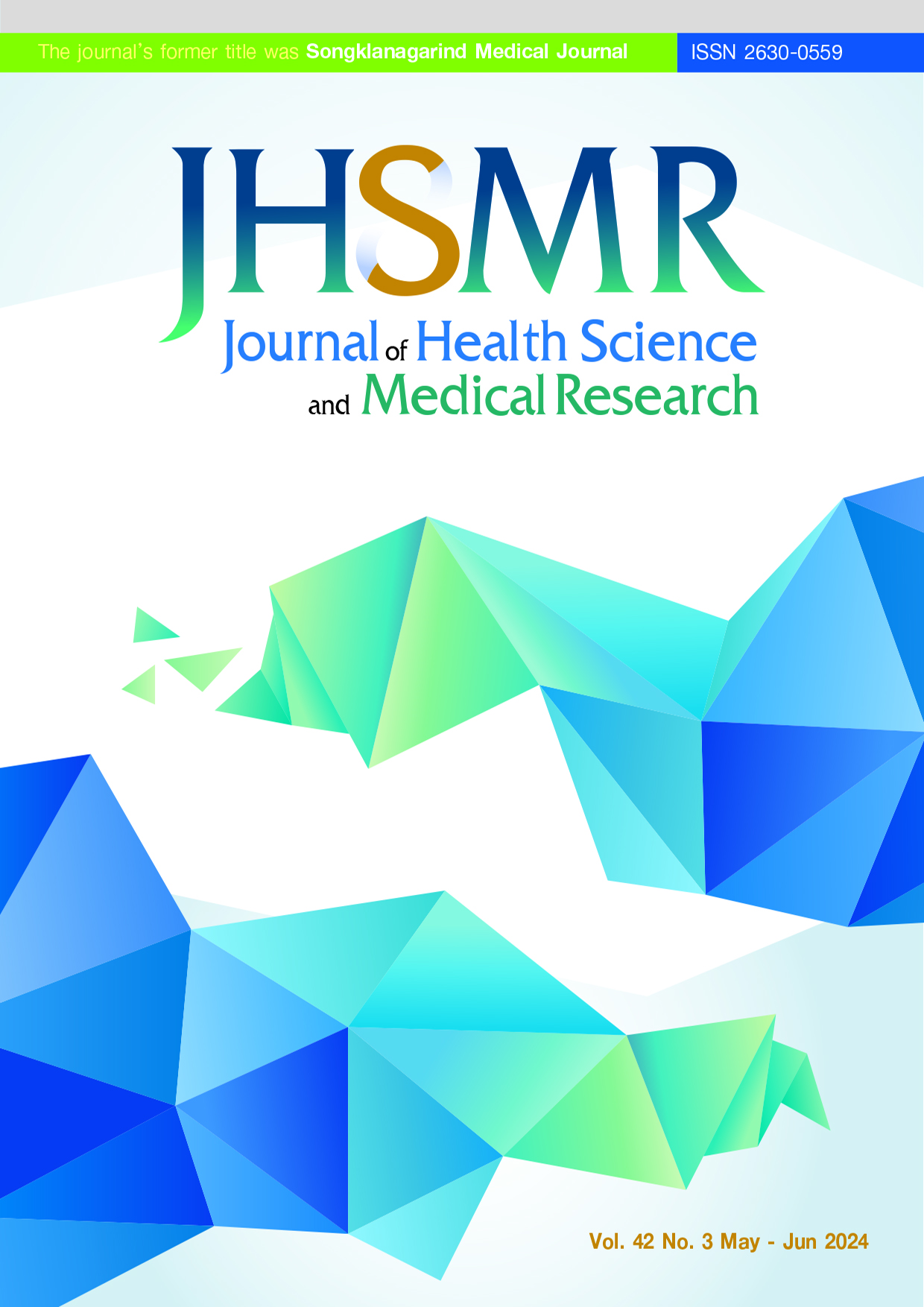Medicinal Plant Cultivation: Current Scenario, Challenges, and Opportunities from Indian Farmer’s Perspective
DOI:
https://doi.org/10.31584/jhsmr.20231009Keywords:
awareness, climate, government support, medicinal plant, socioeconomic statusAbstract
Objective: Plants are the source of medicine in Ayurvedic, allopathic & Unani systems. Globally 72000-77000 (17-18%) of the world’s flora is currently utilized for medicinal purposes. More than 200 therapies employed by different cultures to treat physical and psychological ailments use medicinal plants as curative medicines, substantiating the immense scope for commercial medicinal plant cultivation. This present study was undertaken to find out the difficulties, challenges and opportunities in medicinal plant cultivation from the perspective of farmers in the state of Odisha, India, and to suggest possible support that could promote medicinal plant cultivation.
Material and Methods: A survey was conducted among 700 farmers using a questionnaire containing 15 items related to socioeconomic status, challenges and opportunities.
Results: The study revealed that the education of most of the farmers was below high school; 61% of the participants had their own land, with 10 to 15 years of farming experience. The majority were not into medicinal plant cultivation. The major challenges for medicinal plant cultivation were found to be marketing, finance, climate, lack of experience and training, government support and labour. Support from the government will encourage the medicinal plant cultivation.
Conclusion: Many of the farmers are not aware of the demands and support schemes by the government. Serious gaps were seen in availing government support schemes in medicinal plant cultivation by farmers, leading to limited success and productivity. There is a need to create awareness among the farmers regarding the benefits of medicinal plant cultivation and related training programmes to increase production and productivity of medicinal plants substantially. Support from the government will encourage medicinal plant cultivation.
References
Shakya AK. Medicinal plants: future source of new drugs. Int J Herb Med 2016;4:59-64.
Patwardhan B. Ayurveda: The 'Designer' medicine: a review of ethnopharmacology and bioprospecting research. Indian drugs 2000;37:213-27.
Mandal V, Mohan Y, Hemalatha S. Microwave assisted extraction—an innovative and promising extraction tool for medicinal plant research. Pharmacogn Rev 2007;1:7-18.
Mukherjee PK, Bahadur S, Chaudhary SK, Kar A, Mukherjee K. Quality related safety issue-evidence-based validation of herbal medicine farm to pharma. In Evidence-based validation of herbal medicine. Amsterdam: Elsevier; 2015;37:1-28.
Kumar P, Sharma PK. Soil salinity and food security in India. Front Sustain Food Syst 2020;4:174.
Costa DL. The evolution of retirement. Chicago: University Press; 2008.
Goswami R, Chatterjee S, Prasad B. Farm types and their economic characterization in complex agro-ecosystems for informed extension intervention: study from coastal West Bengal, India. Agric Food Econ 2014;2:1-24.
Samal J. Medicinal plants and related developments in India: A peep into 5-year plans of India. Indian J Health Sci Bio Res (KLEU) 2016;9:14.
Mazumder TZ, Sharma MK, Lal M. Phytochemical properties of some important medicinal plants of north-east India: a brief review. J Pharm Innov 2022;11:167-75.
Halberstein RA. Medicinal plants: historical and cross-cultural usage patterns. Ann Epidemiol 2005;15:686-99.
Heydari-Rahni M, Nasri M, Filizadeh Y, Kasraie P. Effects of chemical and biofertilizers on yield and production factors of valerian (Valeriana officinalis L.). JMPB 2022;11:211-8.
Rajeswara R, Syamasundar KV, Rajput DK, Nagaraju G, Adinarayana G. Biodiversity, conservation and cultivation of medicinal plants. J Pharmacol 2012;3:59-62.
Sahoo G, Wani AM, Satpathy B, Rout S. Traditional medicinal plants of odisha. Research & reviews. Pharmacogn J 2020;7:7-10.
Reddy BS. Organic farming: status, issues and prospects–a review. Agric Econ Res Rev 2010;23:343-58.
Singh H. Prospects and challenges for harnessing opportunities in medicinal plants sector in India. Lead J 2006;2:196.
Govindasamy R, Arumugam S, Simon JE. An assessment of the essential oil and aromatic plant industry with a focus on Africa. African Natural Plant Products Volume II: Discoveries and Challenges in Chemistry, Health, and Nutrition. J Am Chem Soc 2013;289-321.
Census 2021. Odisha Population 2021 Census, Sex Ratio, Density, Literacy. [homepage on Internet]. New Delhi: Census of India; December, 2021. Available from: https://censusofindia2021.com/odisha-population-2021-censusdata/#Odisha_Population_2021_Census
Rath A, Samantaray S, Swain PC. Optimization of the cropping pattern using cuckoo search technique. In Smart Tech Smarter Planet 2019;19-35.
Goswami OG, Bhatnagar P. Economic returns from cultivation of medicinal plants in Amarkantak (madhya pradesh). Reseach Range Officer 1990;14:12-4.
Technology Information Forecasting and Assessment Council (TIFAC), Herbal Products-Current Status, Vision and Action Plan. New Delhi: Technology Information Forecasting and Assessment Council India; 2001.
Singh H. Prospects and challenges for harnessing opportunities in medicinal plants sector in India. Law Environ Dev J 2006;2:196.
Srivastava, P, Singh R, Tripathi S, Raghubanshi AS. An urgent need for sustainable thinking in agriculture–An Indian scenario. Ecol Indic 2016;67:611-22.
Gahukar R T. Sustainable agriculture in India: Current situation and future needs. Int J Agric Sci 2009;5:1-7.
George V, Rajasekharan S, Nair GM. In: Proceedings of the workshop on indigenous knowledge strategies for Kerala, October 7 to 9, 2002, Kanakakunnu Palace, Kerala: University of Kerala. Thiruvananthapuram: Ministry of Environment, India;2000.
Haldhar SM, Jat GC, Deshwal HL, Gora JS, Singh D. Insect pest and disease management in organic farming. Towards Organic Agriculture. New Delhi: Today & Tomorrow’s Publishers 2017:359-90.
Krishna Moorthy PN, Pandey KK, Pandey KK, Krishna Kumar NK. Status and prospects of integrated pest management strategies in selected crops: vegetables. In: Amerika S, Sharma OP, Garg DK. Editors. Intergrated pest management. Principle and Applications volume 2: Principles. New Delhi: CBS Publishers and Distributors; 2006;p.340-92.
Kumar SD, Lal BR. Effect of mulching on crop production under rainfed condition: a review. Int J Res Chem Environ 2012;2:8-20.
Umarani R, Subramaniyan K. Modernization of agriculture–A boon or bane?. Current Science 2000;79:1515.
Katwal RP, Srivastava RK, Kumar S, Jeeva V. Status of forest genetic resources conservation and management in India. In Forest Genetic Resources Conservation and Management: Proceedings of the Asia Pacific Forest Genetic Resources Programme (APFORGEN) Inception Workshop, Kepong, Kuala Lumpur, Malaysia, 15-18 July, 2003. Kuala Lumpur: Bioversity International; 2004;p.49.
Medicinal Plant Cultivation in India; A Profitable Agribusiness Amid Covid-19 Crisis 2022 [homepage on Internet]. Chennai: ICSF; 2022 [cited 2022 Jan 6]. Available from: https://krishijagran.com/agripedia/medicinal-plant-cultivation-inindiaa-profitable-agribusiness-amid-covid-19-crisis.
Downloads
Published
How to Cite
Issue
Section
License

This work is licensed under a Creative Commons Attribution-NonCommercial-NoDerivatives 4.0 International License.
























